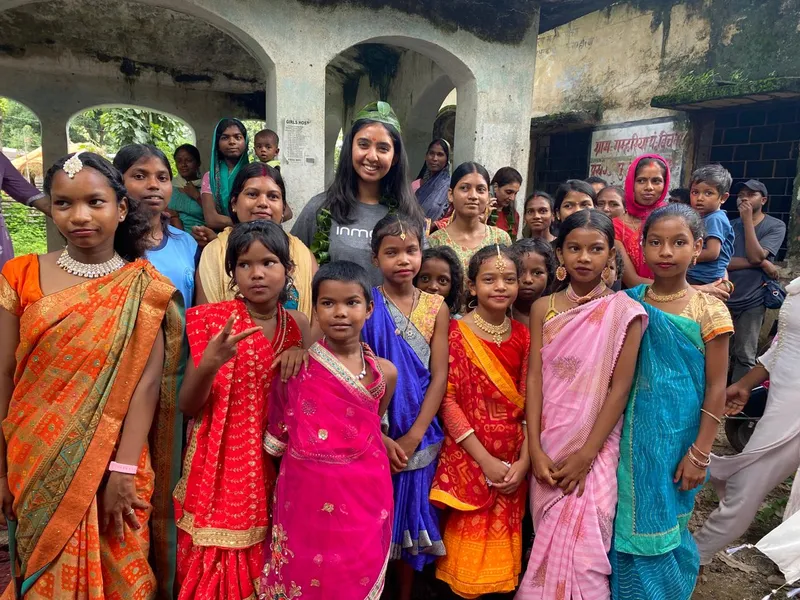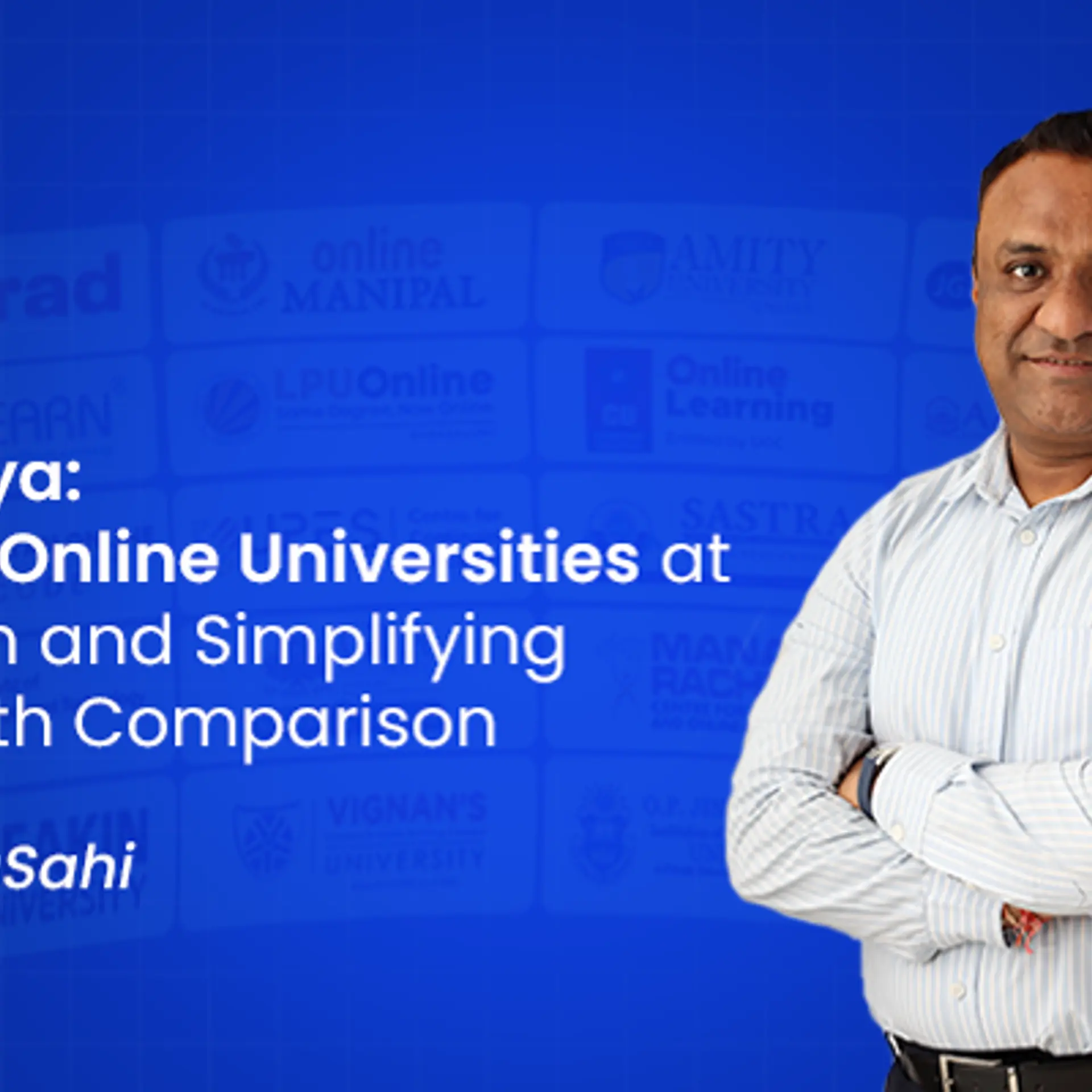Bengaluru student wins young innovator award for tribal arts, AI platforms
Niyati Tewari, a student of The Bangalore International School, recently won the Innovator of the Year Award at the SAHIT National Conference for Inaraa, a platform for tribal arts, and Niyati, an AI-based platform for students.
Niyati Tewari, a 17-year-old student from Bengaluru, recently won the Young Innovator of the Year Award at the SAHIT National Conference 2024: A Spotlight on Women Shaping India’s Future.
A student of class XII at The International School Bangalore (TISB), Tewari won the award for two initiatives—Inaraa, a project that blends traditional tribal art with modern fashion and brings them into the mainstream, and Niyati, an AI-based platform that trains students in artificial intelligence.

Niyati Tewari with the community of girls she works with
Tewari was introduced to the impact of social work as a young girl studying at Valley School in Bengaluru for 10 years. She recalls visiting tribal communities in Tamil Nadu and learning more about their way of life and being inspired to work in the social sector.
Tewari’s mother, who works with artisans across India as part of her textiles company, encouraged her in this direction. When she was in the 11th standard, she started Inaraa, a platform for artisans, especially from tribal communities, who need support to popularise their craft to the world.
Working with artisans
“I have had the privilege to work with many tribes in the Kutch region for my latest collection on Inaraa. These include the Rabari tribe who are famous for their mirror work and exquisite embroidery. For the handloom fabric, I worked with the Bhujodi village. Bhujodi is the home of the Vankars (weavers) of Kutch, from the Meghwal community who had migrated from Rajasthan about 500 years ago,” says Tewari.
A lot of the fabric that Inaara uses is indigenous kala cotton that belongs to Kutch, as the farmers here do not use any pesticides and synthetic fertilisers.
“It is a purely rain-fed crop that has a high tolerance for both disease and pests and requires minimal investment,” she says.
Kutch is also the largest hub for block printing, which forms a major part of the latest collection of Inaraa.
“The Khatris, who are part of the Chippa community, brought with them their knowledge of dyeing and a strong tradition of hand block printing. Chapai, weaving, stitching, block printing, intricate hand-painted, and organically dyed fabrics with naturally occurring pigments create magic on multiple textures, and it’s been a tremendous learning experience for me,” explains Tewari.
Tewari has also worked with the Munda, Tharu, Oraon, Ho, Banjara, Bihor, and Santhal tribes, who are known for art forms such as Sohrai and Jadopatia (painting), bamboo, cane craft, and Dhokra craft.
Inaraa sells apparel, jewellery and handbags on its website.
“The collaboration with a modern fashion platform like Inaraa exposes artisans to new markets and trends, encouraging innovation and skill development. This not only preserves traditional techniques but also allows artisans to adapt and evolve their craft in response to contemporary tastes, broadening their appeal,” says Tewari.
Technology initiatives
Another initiative from Tewari, Mission Niyati, in partnership with CyberPeace, organises workshops on online safety and educating people in villages on cyber crime.
The initiative explains what cybercrime is, what online scams are, the forms in which they can occur, how AI voice and face generators have made it extremely dangerous for people to be safe online, and the security measures one should keep in mind while navigating the web.
“We also educate people on helpline numbers and what to do in case they are victims of cybercrimes,” she says.
Mission Niyati has so far organised 10 workshops in Jharkhand and Uttar Pradesh.
Tewari is also working on creating a platform that features AI tools and instructional videos. The platform, currently in beta testing, provides students, especially those from underrepresented communities, with free tools and resources to enhance their AI skills.
Mission ahead
Tewari will go to college in the United States next year. However, she says she will continue to focus on the AI platform and on expanding Inaraa.
“Creating friends of Inaara and community champions has helped tremendously, and we also have plans to create Inaraa didis who will serve as role models for the wider community.
"Taking inspiration from anganwadi workers and the Honourable PM’s Lakhpati didi programmes, we want to specifically focus on women and young girls from underserved communities, keeping them safe while equipping them with the skills to participate meaningfully in India’s digital economy,” says Tewari, summing up the mission behind both her projects.
Edited by Swetha Kannan







